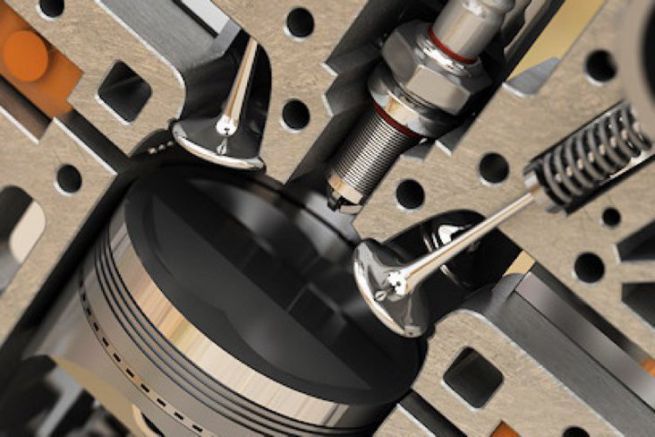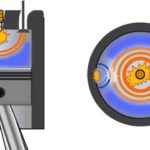The stroke of an engine is referred to the distance covered by the piston from the top dead center to the bottom dead center. If the piston moves two times then the engine is called two stroke if the piston moves four times then the engine is called four stroke engine.
The crankshaft’s rotation is once between two strokes. That means it completes one complete revolution in one power stroke in the case of a two-stroke engine and completes two revolutions in one power stroke in case of a four-stroke engine.

| Two Stroke | Four Stroke |
| It has one revolution of the crankshaft during one power stroke | It has two revolutions of the crankshaft during one power stroke |
| It generates high torque | It generates less torque |
| Its uses ports for fuel’s outlet and inlet | It uses valves for outlet and inlet of a fuel |
| Its engines result in lesser thermal efficiency | Its engines result in higher thermal efficiency |
| It has a larger ratio in terms of power to weight | It has a lesser ratio in terms of power to weight |
| It generates more smoke and shows less efficiency | It generates less smoke and shows more efficiency |
| Requires more lubricating oil as some oil burns with the fuel | Requires less lubricating oil |
| Due to poor lubrication, more wear and tear occurs | Less wear and tear occurs |
| Engines are cheaper and are simple for manufacturing | Engines are expensive due to lubrication and valves and are tough to manufacture |
| Engines are basically lighter and are noisy | Engines are basically heavier because its flywheel is heavy and are less noisy |


